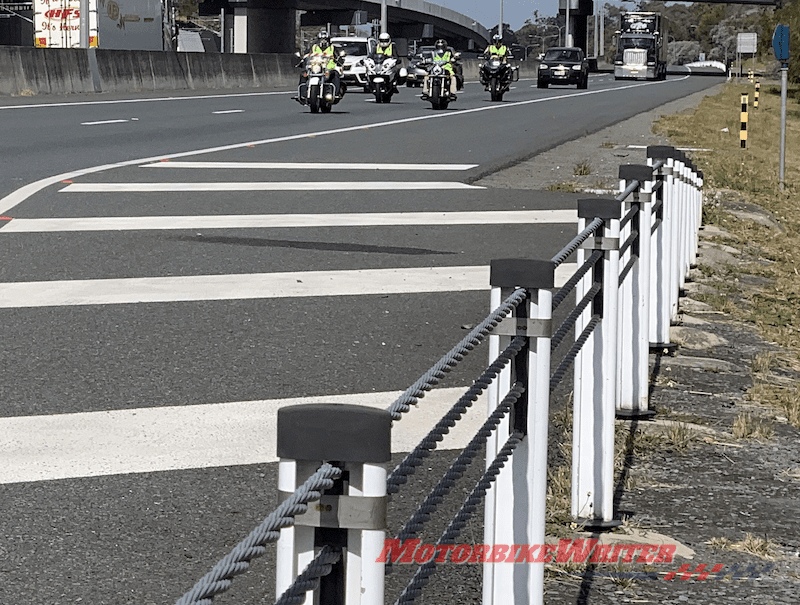Two recent fatal crashes in Australia prove that wire rope barriers (WRBs) are not only a danger to motorcyclists, but also other motorists, says a long-time campaigner against the structures.
Damien Codognotto says a fatal motorcycle crash in Perth during last weekend’s Christmas Toy Run and an SUV double fatal southwest of Brisbane last month could have been affected by WRBs.
He says the female rider died after hitting a WRB that appeared to fence off a run-off area.
“In my opinion, road authorities know how deadly WRB is and they know run-off areas save lives,” Damien says.
In the 4WD crash, the car was slung across the road on a causeway and into another wire rope barrier which failed to stop the car from plunging into Wyaralong Dam, drowning two children.
“If the Wyaralong Dam causeway had had properly anchored smooth concrete barriers instead of wire rope barriers, the children may have survived,” Damien says.
WRBs have long been viewed as dangerous to motorcyclists and now Norway and Ireland have reversed their policy.
The auditor’s report found there was no evidence to support the claimed safety benefits for motorcyclists and scooter riders.
Damien says that if road authorities ad relevant ministers are not aware of the safety shortcomings of WRBs, “they should not be in their taxpayer-funded jobs”.
“Again, in my opinion, the CEO of the road authority and the Minister responsible for the road authority are guilty of manslaughter when someone dies on a WRB,” he says.
De also points out that police rarely identify barrier types in crash reports “so there is no way of knowing the real wire rope barrier toll”.


